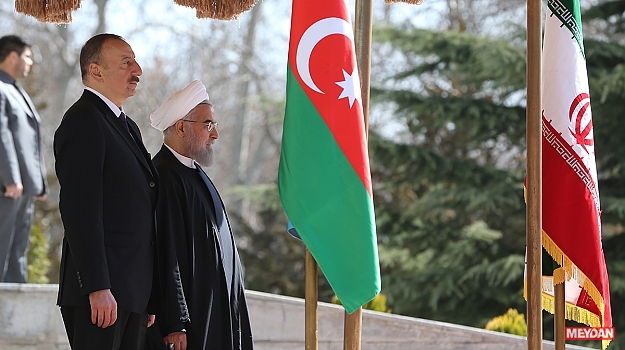
President of Azerbaijan Aliyev visited Tehran on 23rd of February upon President of Iran, Hassan Rouhani’s invitation. Iran and Azerbaijan signed several agreements covering mostly energy, transportation, culture and economy. In order to underline the importance of the agreements in terms of boosting regional cooperation Aliyev stated that “the essence of these documents is quite positive. One part of them will serve for bilateral relations and the other part – for multilateral and regional cooperation”.[1]
Considering the complicated relation between Azerbaijan and Iran, due to their historical ties, Azerbaijan’s close relations with Israel and Iran’s with Armenia, the visit can be taken as a signal of a new era on the relations between the two countries. “We want peace, harmony and cooperation in the region. Today, Iran and Azerbaijan play a stabilizing role in the region we live,” President Aliyev said.[2] Additionally supporting Aliyev’s position towards Iran, Deputy Prime Minister of Azerbaijan, Ali Ahmadov said “we want the traditional friendly relations between Iran and Azerbaijani to even more strengthen the economic and trade relations.”[3]
At the meetings, Aliyev and Rouhani particularly focused on energy, the need of transportation of energy resources and goods to Europe, and the benefits for both countries of the current transit routes going via Azerbaijan. The Southern Gas Corridor can create mutual benefits for both countries. Currently Iran and Azerbaijan already have special swap deals covering two regions; Iran’s northern provinces and Nakhichevan Autonomous Republic. Azerbaijan provides fuel to Iran’s northern provinces and Iran provides gas to Nakhichevan Autonomous Republic.[4]
The legal status of the Caspian Sea[5] was also on the agenda. With the Collapse of the Soviet Union, the legal status of the Caspian Sea remained as an unsolved issue held on the shelves in the last decade. Although there have been some positive developments, such as adoptation of the Framework Convention for the Protection of the Marine Environment of the Caspian Sea[6] by all 5 littoral countries as well as various bilateral and trilateral agreements among parties, the discussion on the “legal status” has not been put on the table to be solved. Declaratively, at the meetings held in Tehran, both parties agreed on speeding up the process to solve the status of the sea. For instance, within the context of the reached agreements and talks, The State Oil Company of Azerbaijan (SOCAR), National Iranian Oil Company and Ghadir Investment Company might conduct joint exploration activities in the Caspian basin.[7]
North South Transport Corridor was also one of the agenda items. Both Iran and Azerbaijan have important geographical locations connecting Asia, Europe, Middle East and the Caucasus. This project links Astara (Azerbaijan) with Rasht and Qazvin (Iran)[8] and has a significant potential in terms of actualizing the long-pending projects promoting cooperation and trade among Russia, Azerbaijan and Iran. Implementation of the foreseen projects have already started. In December 2015, Azerbaijani Ministry of Economy and Industry declared that the first phase of the North-South railway corridor, connecting Azerbaijan and Iran, would be finalized before late 2016.[9]
Additional to the meeting with Rouhani, Aliyev also visited Leader of the Islamic Revolution Ayatollah Seyyed Ali Khamenei and exchanged ideas on the cultural and religious issues. While underlying the importance of cooperation between the two countries, Ayatollah Khamenei stated that “Political stability, security, calm and public welfare for people of Azerbaijan are very important for us and in the light of wholehearted understanding between the two nations, economic exchanges and cooperation in different sectors must increase,”[10] Azerbaijan with a Shii population, has been a significant example of good inter-religious relations accommodating both Shii, Sunni, Christian and Jewish populations within its territory. For the sake of conservation of the diversity, stability and peace in the region, it is vital to pursue such a balanced policy towards religious groups.
Following his visit to Tehran, Aliyev called Rouhani on 27th of February and both parties confirmed their determinations on continuing talks and boosting cooperation.
Considering the developments in the post-Nuclear deal, Eurasia seems to have come to the fore in the considerations of Iran. Latest agreements and the talks between Iran and Georgia, and then between Iran and Azerbaijan signals an increasing interest for regional cooperation particularly on energy deals, transportation corridors and trade as well as cultural affairs. Iran, already having good relations with Armenia, keeps the countries in the South Caucasus closer. Azerbaijan and Iran have the potentials to meet not only the region’s but also Europe’s energy demands via Georgia and Turkey. However, Iran is still yet to decide whether it wants to reach Georgia - and then Europe- via Armenia or Azerbaijan. However taking Russia’s strong influence in Armenia into account, it would be less risky to continue the talks with Azerbaijan. The positive outcome of Aliyev’s visit might encourage actors to do so.
Photo: meydangazetesi.com.tr
[1] Cihan News Agency, “President Aliyev: Iran, Azerbaijan play stabilizing role in region”, 23.02.2016, Access: 25.02.2016, https://www.cihan.com.tr/en/iran-aliyev-rouhani-tahran-stabilizing-role-region-counterpart-azerbaijan-baku-president-2020121.htm
[2] ibid
[3] AzerNews, “President Aliyev's Tehran visit marks milestone in bilateral ties”, 25.02.2016, Access: 07.03.2016, http://www.azernews.az/azerbaijan/93339.html
[4] AzerNews, “President Aliyev embarks on official visit to Iran”, 23.02.2016, Access: 07.03.2016, http://www.azernews.az/azerbaijan/93247.html
[5] There is no consensus on the legal status yet, some countries consider Caspian as a sea whereas some consider it as a Lake, or would like to adopt a special status
[6] Entered into force in 2006 and known as Tehran Convention, full text is available on: http://www.tehranconvention.org/spip.php?article4
[7] Shiriev, Zaur “The Economic and Geopolitical Implications of Iran and Azerbaijan’s Recent Engagement”, 09.03.22016, Access: 10.03.2016, http://www.jamestown.org/single/?tx_ttnews%5Btt_news%5D=45189&no_cache=1#.VuF-UvmLSUk
[8] Shiriev, Zaur “The Economic and Geopolitical Implications of Iran and Azerbaijan’s Recent Engagement”, 09.03.22016, Access: 10.03.2016, http://www.jamestown.org/single/?tx_ttnews%5Btt_news%5D=45189&no_cache=1#.VuF-UvmLSUk
[9] Trend.az, “First stage within North-South transport corridor to be completed in 2016 (exclusive)”, 22.12.2015, Access: 07.03.2016, http://en.trend.az/azerbaijan/business/2472908.html
[10] PressTV.ir, “Promotion of Islam counters Takfirism: Ayatollah Khamenei”, 23.02.2016, Access: 07.03.2016, http://www.presstv.ir/Detail/2016/02/23/451908/Iran-Azerbaijan-Khamenei-Aliyev
© 2009-2025 Center for Eurasian Studies (AVİM) All Rights Reserved
No comments yet.
-
 A REGIONAL THREAT: METSAMOR
A REGIONAL THREAT: METSAMOR
Özge Nur ÖĞÜTCÜ 04.11.2015 -
 CHINA IN AFGHANISTAN
CHINA IN AFGHANISTAN
Özge Nur ÖĞÜTCÜ 18.05.2017 -
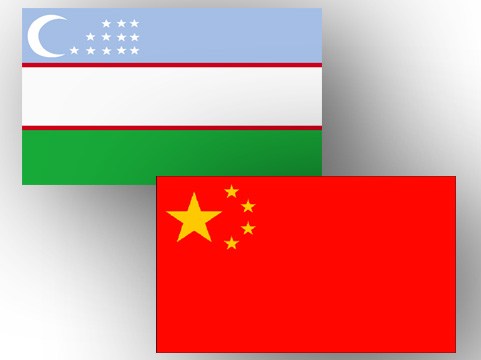 CHINA’S INCREASING INTEREST IN UZBEKISTAN
CHINA’S INCREASING INTEREST IN UZBEKISTAN
Özge Nur ÖĞÜTCÜ 21.02.2017 -
 NUCLEAR THREAT IN THE SOUTH CAUCASUS; METSAMOR TO CONTINUE OPERATING
NUCLEAR THREAT IN THE SOUTH CAUCASUS; METSAMOR TO CONTINUE OPERATING
Özge Nur ÖĞÜTCÜ 20.10.2016 -
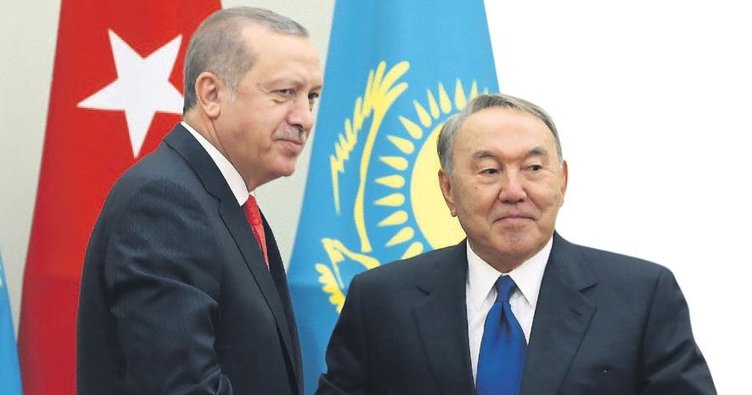 THE CURRENT STATE OF RELATIONS BETWEEN KAZAKHSTAN-TURKEY
THE CURRENT STATE OF RELATIONS BETWEEN KAZAKHSTAN-TURKEY
Özge Nur ÖĞÜTCÜ 13.09.2017
-
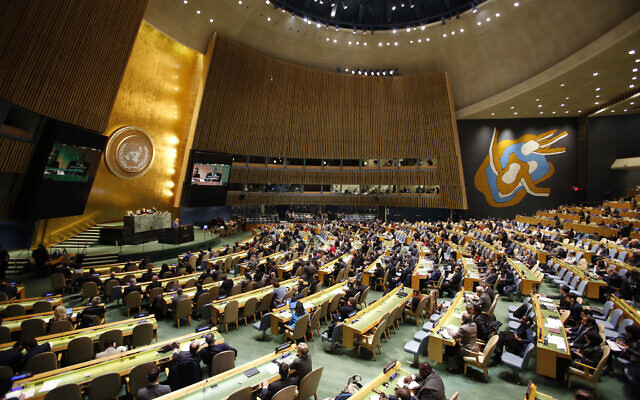 THE UN GENERAL ASSEMBLY REJECTED AND CONDEMNED HOLOCAUST DENIAL AND RECALLED THE INTERNATIONAL LEGAL BASIS OF ITS REJECTION
THE UN GENERAL ASSEMBLY REJECTED AND CONDEMNED HOLOCAUST DENIAL AND RECALLED THE INTERNATIONAL LEGAL BASIS OF ITS REJECTION
Teoman Ertuğrul TULUN 04.02.2022 -
 OPPOSITION AGAINST THE TURKEY-ARMENIA NORMALIZATION PROCESS THROUGH THE USE OF CARTOONS
OPPOSITION AGAINST THE TURKEY-ARMENIA NORMALIZATION PROCESS THROUGH THE USE OF CARTOONS
Mehmet Oğuzhan TULUN 13.05.2022 -
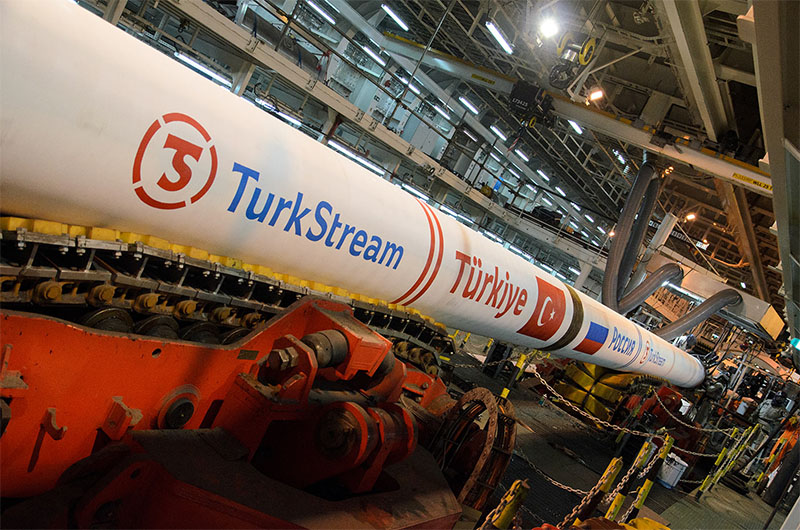 THE INCREASING IMPORTANCE OF TURKSTREAM FOLLOWING KIEV'S SUSPENSION OF RUSSIAN GAS SHIPMENT TO EUROPE
THE INCREASING IMPORTANCE OF TURKSTREAM FOLLOWING KIEV'S SUSPENSION OF RUSSIAN GAS SHIPMENT TO EUROPE
Bekir Caner ŞAFAK 17.01.2025 -
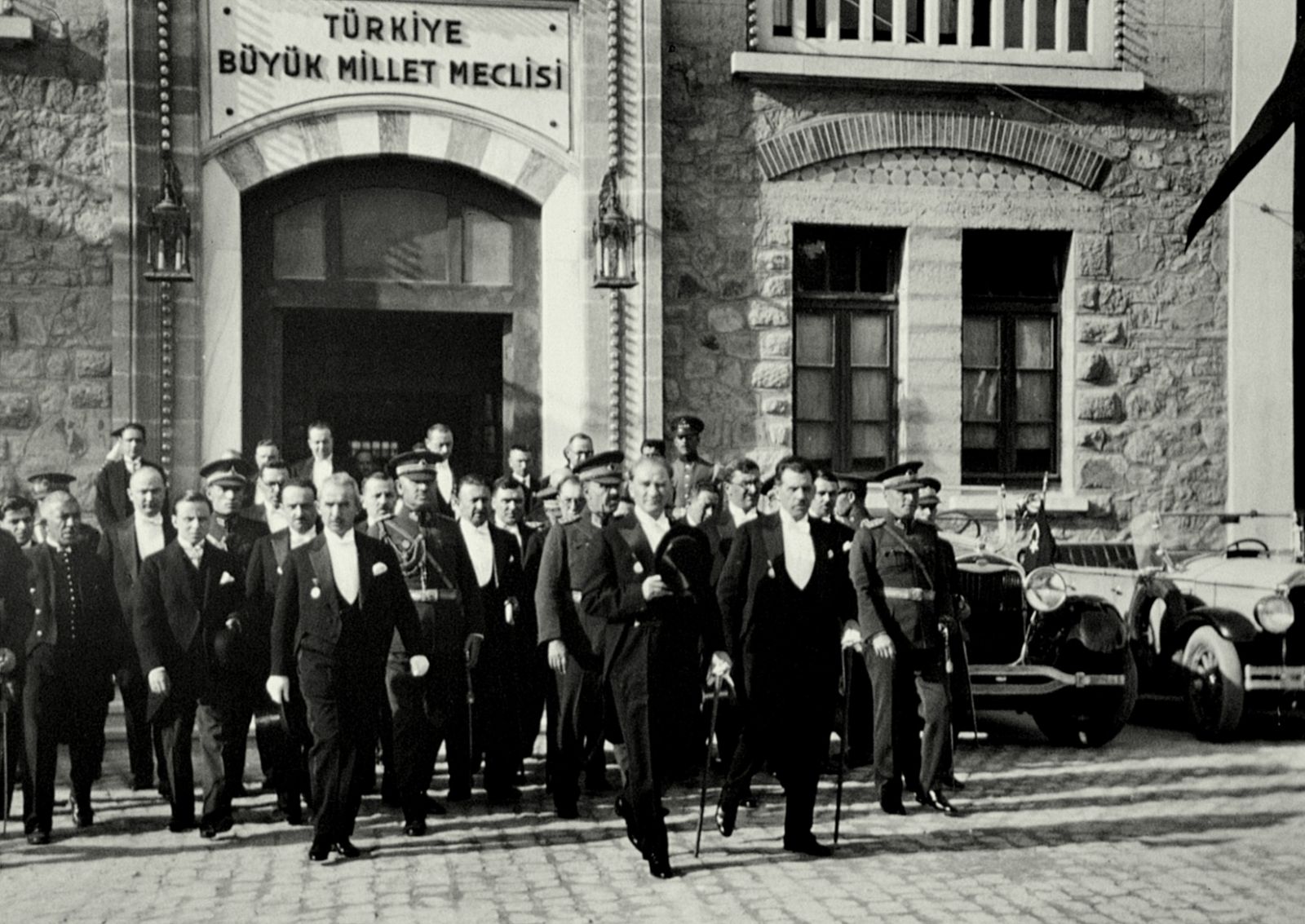 CONCERTED EFFORTS TO DOWNPLAY THE MILESTONES OF THE REPUBLIC OF TÜRKİYE AND TURKISH HISTORY
CONCERTED EFFORTS TO DOWNPLAY THE MILESTONES OF THE REPUBLIC OF TÜRKİYE AND TURKISH HISTORY
Teoman Ertuğrul TULUN 14.06.2023 -
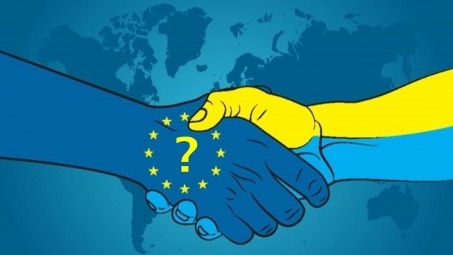 IS THERE DISCRIMINATION BETWEEN REFUGEES IN THE UKRAINE TRAGEDY?
IS THERE DISCRIMINATION BETWEEN REFUGEES IN THE UKRAINE TRAGEDY?
Hazel ÇAĞAN ELBİR 24.03.2022
-
25.01.2016
THE ARMENIAN QUESTION - BASIC KNOWLEDGE AND DOCUMENTATION -
12.06.2024
THE TRUTH WILL OUT -
27.03.2023
RADİKAL ERMENİ UNSURLARCA GERÇEKLEŞTİRİLEN MEZALİMLER VE VANDALİZM -
17.03.2023
PATRIOTISM PERVERTED -
23.02.2023
MEN ARE LIKE THAT -
03.02.2023
BAKÜ-TİFLİS-CEYHAN BORU HATTININ YAŞANAN TARİHİ -
16.12.2022
INTERNATIONAL SCHOLARS ON THE EVENTS OF 1915 -
07.12.2022
FAKE PHOTOS AND THE ARMENIAN PROPAGANDA -
07.12.2022
ERMENİ PROPAGANDASI VE SAHTE RESİMLER -
01.01.2022
A Letter From Japan - Strategically Mum: The Silence of the Armenians -
01.01.2022
Japonya'dan Bir Mektup - Stratejik Suskunluk: Ermenilerin Sessizliği -
03.06.2020
Anastas Mikoyan: Confessions of an Armenian Bolshevik -
08.04.2020
Sovyet Sonrası Ukrayna’da Devlet, Toplum ve Siyaset - Değişen Dinamikler, Dönüşen Kimlikler -
12.06.2018
Ermeni Sorunuyla İlgili İngiliz Belgeleri (1912-1923) - British Documents on Armenian Question (1912-1923) -
02.12.2016
Turkish-Russian Academics: A Historical Study on the Caucasus -
01.07.2016
Gürcistan'daki Müslüman Topluluklar: Azınlık Hakları, Kimlik, Siyaset -
10.03.2016
Armenian Diaspora: Diaspora, State and the Imagination of the Republic of Armenia -
24.01.2016
ERMENİ SORUNU - TEMEL BİLGİ VE BELGELER (2. BASKI)
-
AVİM Conference Hall 24.01.2023
CONFERENCE TITLED “HUNGARY’S PERSPECTIVES ON THE TURKIC WORLD"









